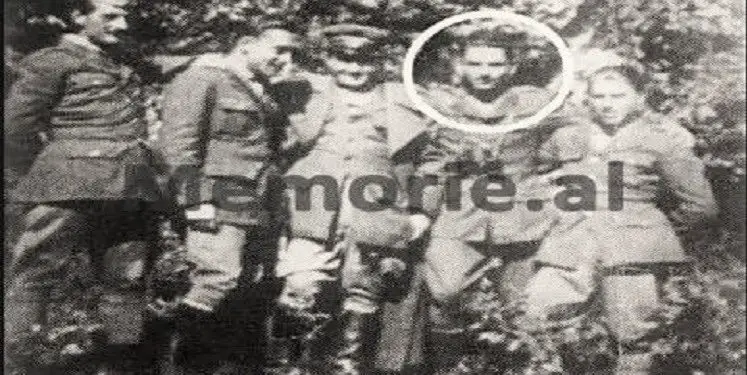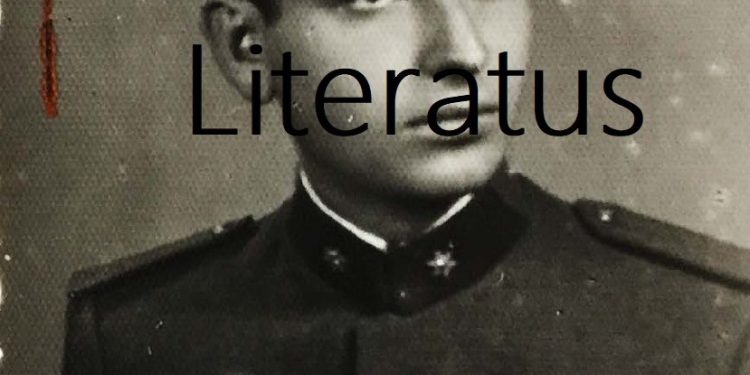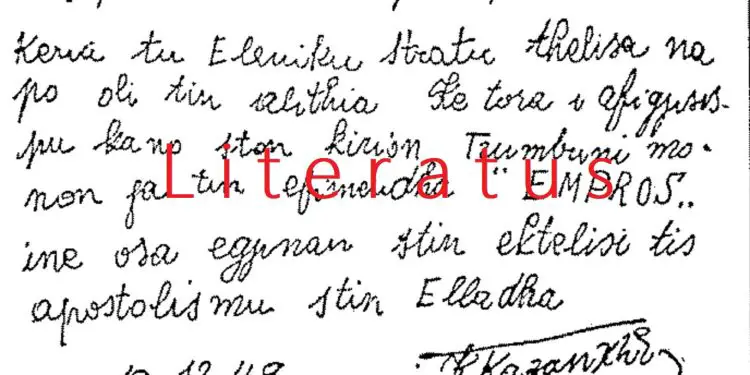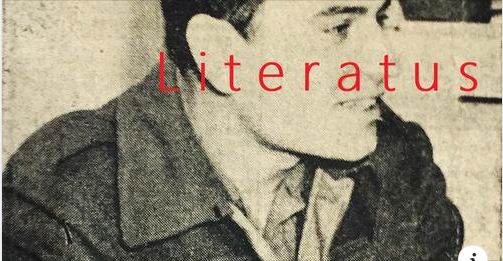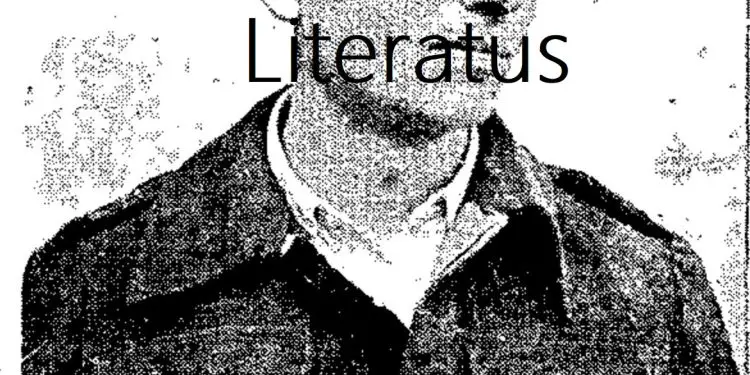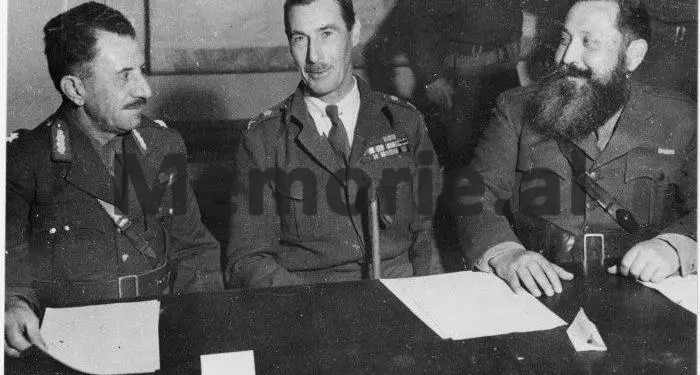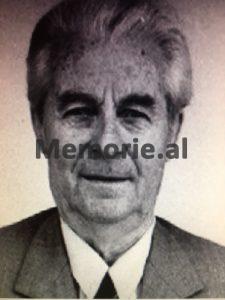By Stavri J. DAJO
The third part
The failed secret mission of the Albanian detective Koço Kazanxhi in Greece, his arrest and death sentence (1948-1951) –
According to the judicial fascicle
Historical framework –
Continues from last issue
Memorie.al / Although his end is predetermined and inevitable, as the execution team awaited him, with the same pride and coolness as he awaited the entire interrogation and hearing, Kazanxhi begged his relatives to mediate or they were looking at the possibility of exchanging him with some Greek explorer captured in Albania at the time. (It should be noted that in 1953, the Bulgarian spy, Trabov, was caught red-handed in Thessaloniki, who was exchanged for a Greek spy, six years later, in 1959).
“If not, it seemed to them, I am ready to face the execution squad with pride and coolness, until the last moments of my life, shouting as an officer of our National Army: Long lives the People’s Republic of Albania! Long live Comrade Enver and PKSH! Long live Comrade Stalin and all democratic peoples! Long live the Bolshevik Party! Parents, friends and relatives, do not despair if I will not return to your bosom; this does not mean that the Albanian people will be lost”.
And he gave them his blessings and sent them greetings for the New Year celebration. The last letter from the prison bears the date December 21, 1951. Tired of the long investigation, the letter confesses signs of fatigue and mental disorders, but still hopes and begs the lawyers to look at the slightest possibility of canceling the execution of the decision. But this did not happen, finally, Kazanxhiu was executed on Friday in the early hours of the morning of December 28, 1951.
Review of the Kazanxhi case by the Ministry of Internal Affairs
On October 16, 1949, the Permanent Representative of Greece to the UN, Alexis Kyrou, reported to the General Secretariat, the case of the arrest of the Albanian discoverer, and four days later, on October 20, 1949, Tirana was also officially notified.
But the Ministry of Internal Affairs did not take any steps to clarify the issue and save Kazanxhiu. Shut up. In early June 1952 (after he had been executed), the Albanian Ministry of the Interior commissioned a senior Security officer to review his case.
In a memorandum submitted by this officer, he concludes that his attitude before the investigative authorities of Greece was not good at all, after he disclosed all the details of the mission, gave all the sensitive information he knew about Albania and the UDG. Showed correct data, names, locations and dates.
This arbitrary conclusion (which was actually events that were already universally known to be related to the Greek Civil War) was based exclusively on articles that had been published in the Greek press, but which was not the whole truth.
This officer believed that Kazanxhiu was not executed, but “the monarcho-fascists of Athens will use him in Durrës”, via Italy!!! The conclusions were naive and ridiculous. Other officials of the Ministry of Internal Affairs were called to testify for him, Greek speakers, as well as Myftar Tare.
All condemned his attitude to the Greek authorities. Eventually, Kazanxhiu was declared a traitor and his salary was cut off. Kadri Hazbiu also insisted that his capital punishment by the Greek court did not justify his high treason.
In 1954, Mehmet Shehu (then Minister of the Interior) was furious that one of the country’s most skilled scouts had left for Greece as a goat to the butcher, on a mission that had no chance of being crowned with success.
Thus, for a decade, until 1962, Kazanxhiu was stigmatized as a traitor, as the review ignored his unwavering stand before the court and his letters from prison.
At the beginning of 1961, Kadri Hazbiu happened by chance in Moscow for a surgical intervention in the Soviet clinics and in the pavilion with Greek guerillas (coincidence!), he learned that Kazanxhiu’s investigation was done under torture conditions, and that after they tried to recruit him but they could not, the Greeks killed him. This information should be taken with a lot of reservations.
In August 1965, a senior Border Intelligence officer, referring to Kazanxhi’s cheering in the courtroom and an article in the Albanian diaspora newspaper (“Iliria”, January 25, 1952), which praised Kazanxhi’s courageous stand before the court, proposed his complete rehabilitation, moral, political and economic, and assigned the officer Miltjadh Meçi, for the further investigation of the case.
And indeed, with the decision 1730/1-9-1965, of the Central Committee of the Labor Party of Albania, sent to the Ministry of Internal Affairs, Kosta Kazanxhi was designated as “Martyr of the Nation”, who had maintained an indomitable attitude and revolutionary, while carrying out the mission, protecting the interests of the Party and the state.
The high leadership of the Party proposed his rehabilitation as a security officer, to be declared a Hero and at the same time proposed to the Presidium of the People’s Assembly to be declared a Martyr after death, recognizing all the rights of the officer, ordering that the relevant additions and changes to be registered in his personal file. The family was given a pension.
In 1977, the writer Vangjel Kule, relying mainly on oral information and partially studying Kazanxhi’s file in the Ministry of Internal Affairs, wrote a monograph (more fiction) about his life and activity (Vangjel Kule, “In the catacombs of an island”: novel, Tirana, “Naim Frashëri” Publishing House, 1977) with mainly propagandistic content and literary observation. A Street in Durrës bore his name until recently
Final conclusions
This is the legend, the contradictory statements of the Albanian discoverer – as he himself confesses – a victim of the Cold War and the gullible politics of Enver Hoxha, but also of the merciless war within the ranks of the State Security, as he himself claims.
The investigative-judicial file and especially the journalistic tracking of Panos Troumpounis, during the detention in the detention facilities, which lasted for two months, proved the international communist conspiracy against the Greek parliamentary order, the violent overthrow of the regime and the legitimate government in Greece, while its territorial integrity and national sovereignty were seriously compromised by the concerted plan of Moscow and its satellites. During this period, both countries, Albania and Greece, found themselves on the verge of war.
True, according to the opinion of the investigative authorities, Kazanxhiu was a very skilled detective, with special detective qualities: sharp perception, professional qualification and detective smell, unwavering communist convictions, but above all he knew how to hide and camouflage his thoughts and intentions his, he carefully weighed the answers and was endowed with an incredible memory, he remembered with excruciating accuracy details, events and dates, places where he passed and acted, meetings, dialogues, decisions, as if he kept a real diary. These are qualities of a finicky and complete discoverer; it was said in the findings of the time in Greece.
In the evening, Kazanxhiu never reached Kefalonia and the criminal offense for which he was accused and sentenced remained unconsummated. Therefore, he should perhaps be seen as another victim of the Cold War paranoia, the unbridled nationalism of the West and the blind communist faith of the East, which encouraged and provoked the danger of a new world war and, conversely, the danger of dominance communist, in the democracies of the West.
After the case of Kazanxhi, other groups of detectives were sent from Albania to Greece, who were caught and convicted. In 1954, the Ministry of Foreign Affairs of Greece vigorously protested near the Soviet embassy in Athens, for the harmful activity of Albanian and Bulgarian spies, which was accompanied by sabotage and terrorist acts in agricultural areas: explosions with tritol of water pipes, power plants, terror blind in cities, especially in the area of Greek Macedonia and Corfu, as areas of strategic importance.
But most of these gangs were caught and ended up in military courts. Otherwise, they debunked thmissions, the perpetrators and provided information of agency-operational value; as a result, Greece had turned into a valuable reservoir of secret information, for the subversive activity of Albania and Bulgaria, against Greece for NATO.
We are mentioning only a few cases. On February 28, 1954, the Albanian spy, Riza Shuzni, was sentenced to death (the transliteration of the names often presents insurmountable difficulties, due to the Greek alphabet, so we express reservations about the accuracy of their generalities), on the charge of spying activity against Greece.
On the same charge, on October 9, 1954, the spy Osman Xhaho, captured on March 22, 1952, was sentenced to death. On May 5, 1954, the spy Shaban Luli, who had infiltrated as a fugitive, was sentenced to life imprisonment. Politician, on July 8, 1960, Zyber Isak Xhaferri was sentenced to death for subversive activities by the military court of Kozan, etc.
On August 11, 1960, the noisy trial of Thessaloniki took place with 5 detectives from Albania, members of the Communist Party of Greece and recruited as agents by the Albanian State Security. Until October 1961, the Greek military courts had sentenced to death (or other severe punishments) 227, spies mainly coming from the countries of the socialist camp, among them from Albania, mostly recruited with coercive material (according to (according to the data that the CIA had, in the early 60s, 95% of the agents of the East, sent to Western countries, captured and convicted were recruited with coercive material, and not voluntarily, or on the basis of ideological or political convictions) .
These trials, on the other hand, do not show the credentials of impartial and objective trials, that in Greece, as everywhere in Western Europe, a hysterical war was declared, for merciless attacks on the communist element (according to McCarthy) with sensational judicial processes and punishments heavy.
Indicatively, at the same time as Kazanxhiu’s trial, the well-known trial of Nikos Bellojanis took place (October 1951), who was sentenced to death and executed, accused of having come from Albania (trained in Burrel) as an agent of secret services of eastern countries.
His group was caught red-handed along with the radio communication equipment that communicated with Albania. A year later (August 1952), the trial of the aviators began with the protagonist Nikos Akrivogiannis, a Greek spy, who was sent on a secret mission to Albania, was captured and sentenced to death (1954) in Berat.
In the court file and in the investigative questionnaire of these processes, a lot of evidence was administered about the agent networks prepared by the Albanian Security under the dictates of the Kremlin, where Albania’s involvement in subversive activities against the legal order of Greece was convincingly proven. Memorie.al
July 2023
*Doctor of Sciences of History of the University
“Aristotle” Thessaloniki




